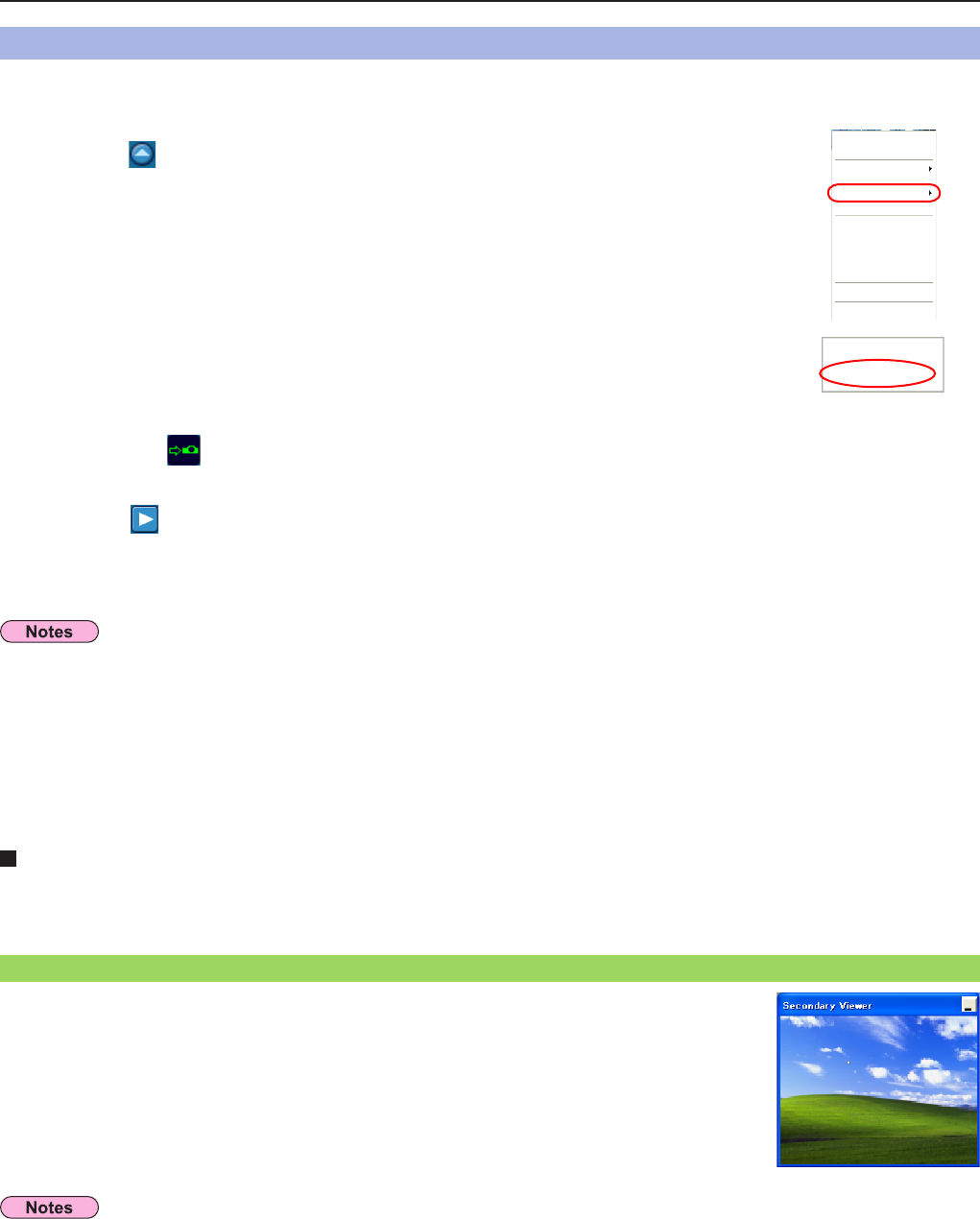
45
Useful Functions (cont.)
You can set the computer screen and the projector screen to the multi-monitor mode, and use the computer screen as the
primary monitor and the projector screen as the secondary monitor.
Click [Display Change] in the launcher menu.
The window shown to the right appears.
2
Click [ ] on the launcher.
The PC’s secondary screen is projected to the projector.
5
Check the status indication on the launcher to make sure that transmission is
possible ( ). (See page 32)
4
Secondary display transmission
• Like the normal multi-monitor function, you can change the relative positions of the primary monitor (computer screen) and
secondarymonitor(projectorscreen)inthe[Settings]tabinthe[ScreenProperties]window([Start]→[ControlPanel]→
[AppearancesandThemes]→[Screen]).
• It is impossible to send images to the secondary monitor by the selective area transmission (
See page 44).
• If the computer has been set to the multi-monitor mode, the monitor for the display switch-over function will be displayed as the
third monitor in [Display Properties] of Windows.
• Some moving image applications may not play moving images when you are using secondary display transmission in
Windows Vista or Windows 7.
Quitting secondary display transmission
Click [Primary] in step 2.
If you are using secondary display transmission function and projecting a secondary monitor
screen in multiple source multi live mode, once [Live Mode] – [All] is pressed on one of the
computers, the full screen display from the computer will override all the rest, and it will no longer
be possible to verify the secondary screens of the other computers on the projector screen(s).
In this case, the secondary screen that you were projecting will appear on your desktop as a
secondary viewer in reduced form.
Also, while using the secondary display transmission in the 4-screen index style and the 16-screen
index style, the secondary viewer appears.
Secondary Viewer
• You can perform operations on the secondary monitor while observing the secondary viewer on the computer screen, however
an image will not appear on the projection screen(s) until the projection screen(s) goes back to the original projection style.
• When the projector screen(s) return to its original status, the contents of the secondary viewer are displayed on the projection
screen(s), and the secondary viewer is closed as well.
Click [Secondary].
3
Click [ ].
The launcher menu will appear.
1
Live Mode
Selective Area Transmission
Display Change
Virtual Remocon
Pointer
AV Mute
WEB control
Select Access Port
Option
About Wireless Manager
End
Start/Pause
Stop
Primary
secondary


















